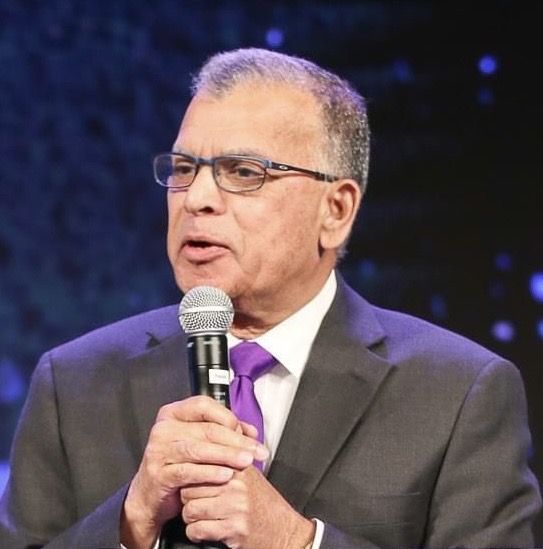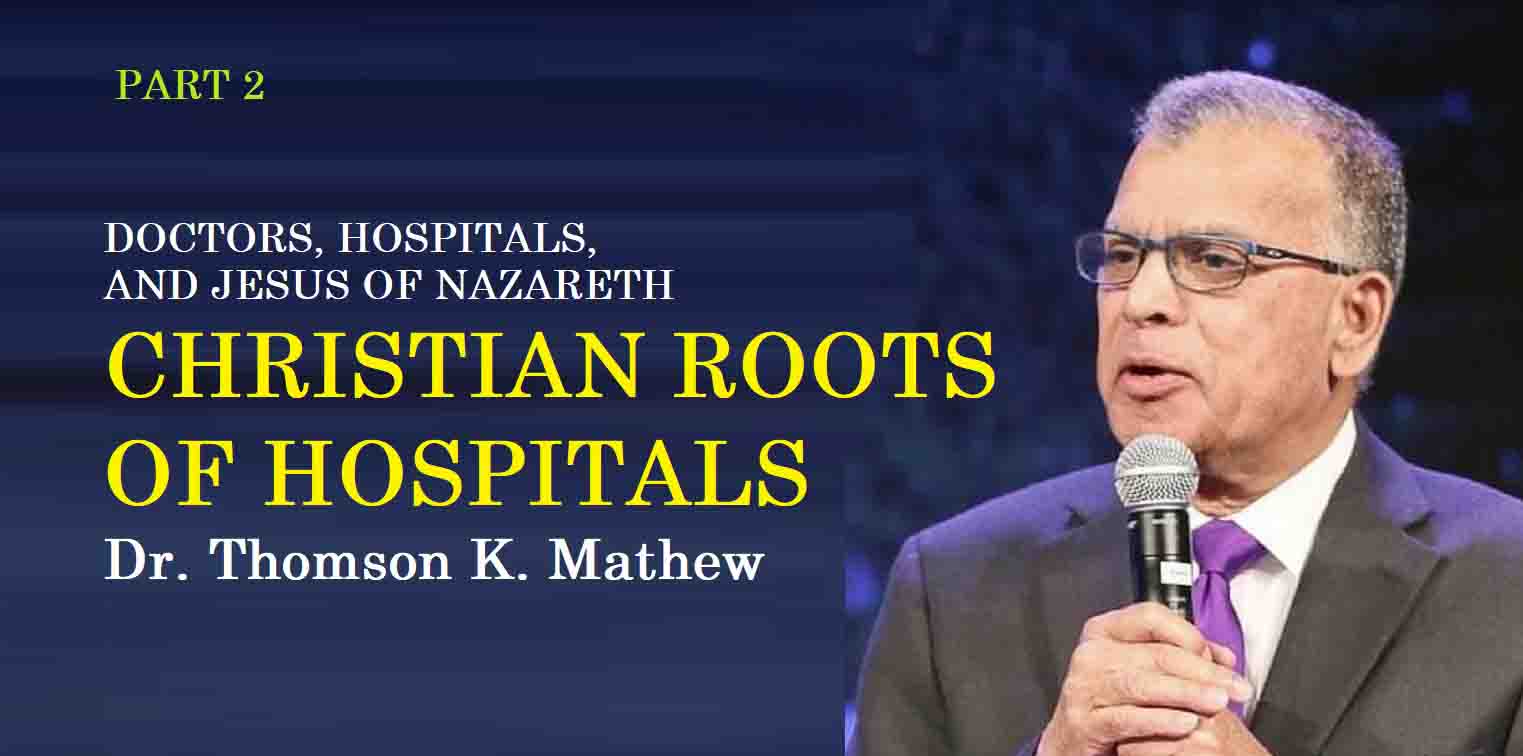Cultures and civilizations that existed before the establishment of the church, especially in the West, did not value the lives of the sick. It was not uncommon to see chronically ill people abandoned by these societies.
Cultures and civilizations that existed before the establishment of the church, especially in the West, did not value the lives of the sick. It was not uncommon to see chronically ill people abandoned by these societies. Although individuals who had families were cared for by their loved ones, those without relatives, and especially the poor, received practically no care at all. It is difficult for us to understand what a revolutionary Jesus of Nazareth was when it came to the acceptance and embracing of the sick and the afflicted in society. His teaching on who one’s true neighbor is based on the parable of the good Samaritan impacted the world and changed many cultures.
The First (Modern) Hospital
Christianity promoted the care of the poor and sick and inspired the establishment of hospitals. Basil the Great, the Eastern Church father, founded most likely the first hospital for the poor in AD 372 near Caesarea. This institution was part of a mega charitable project involving care for lepers and other sick persons, with separate areas provided for the treatment of contagious and noncontagious patients. Both physicians and priests were involved in the care of the sick at Caesarea. This facility accepted physicians and medicines as God’s servants for His healing work.
Opposing Theologies
Although Christianity promoted the care and healing of the sick, Christians held opposing views about medical care and hospitals throughout the ages. While church father Basil provided medical care along with spiritual care for the sick, Benedict of Nursia, the founder of the Benedictine Order, who lived in the late fifth and early sixth centuries, on the other hand, forbade the study of medicine. He believed that only prayer and divine intervention could heal diseases.
Clergy and Laity in Healing Work
While the official church and theologians differed in their views of healing, ordinary Christians were involved in the work of healing through medicine and prayer. Lady Fabiola, a wealthy Roman widow who inherited great wealth from her deceased second husband, as part of her penitential work, established a hospital at Porto (Ostia) on the mouth of the Tiber River in Rome as early as 395. She not only provided care for the sick in Rome but traveled widely to bring the sick and needy from distant places to the hospital. She also hired “traveling priests” who brought both Christian and non-Christian patients to the hospital. She brought in both free citizens and poor slaves.
History mentions two other early hospitals: one founded by Ephrem “the Deacon” in Edessa, now called Urfa in Syria, and another founded around AD 400 by John Chrysostom in Constantinople, where he was bishop. The monasteries continued this tradition of hospitality, taking care of the travelers (stranger-guests who in those days did not have any comfortable means of transport, especially the poor), and the ill. Saint Benedict commanded the monks in his Rule to “relieve the lot of the poor” and “visit the sick.” It is hard to determine the exact nature of the medical attention the monks provided, but two historical facts are evident: (1) the monks took care of the poor and the travelers and did not turn away anyone due to cost, and (2) they maintained libraries, transcribing available books on medical knowledge, to advance the field of medicine.
Other religious orders took up similar work. The Hospitallers of St. John of Jerusalem is one example. They were not motivated by material rewards as all of them were monks. There was a corresponding order of women called the Order of St. Mary Magdalen who provided care to pilgrim women who came to Jerusalem. Another order was the Hospitallers of the Holy Ghost, founded in France in 1180, which was instrumental in the development of hospitals as we know them now.
According to The Catholic Encyclopedia, there were similar establishments functioning outside the monasteries. The Hotel-Dieu (guesthouse of God) was one of them built in Lyons, France, by King Childebert. The only requirements for admission to this facility were “poverty and wretchedness.”
Motivation
One thing is sure. All these efforts were based on the understanding of the words of Jesus, “For I was hungry and you gave Me food; I was thirsty and you gave Me drink; I was a stranger and you took Me in. . . . Assuredly, I say to you, inasmuch as you did it to one of the least of these My brethren, you did it to Me” (Matthew 25:35, 40).
The same motivation caused Francis of Assisi (1181/82–1226) to embark on his mercy work among lepers. Likewise, Catherine of Siena (1347–1380) cared for the lepers and those with terrible illnesses with her own hands whom others refused to touch. The Sisters of Charity, founded by Saint Vincent de Paul (1581–1660) combined religious life with care for the sick. Saint Vincent believed in prayer and medicine and founded several hospitals. Saint Peter Canisius (1521–1597) “relied most on prayer,” but defended those who used what he called the weapons of science (medicine and hospitals).
Florence Nightingale
The legacy of Florence Nightingale (1820–1910) as the lady with the lamp represents the contributions of nurses to the care and healing of the sick, motivated by their faith. The motivating power behind Nightingale, who professionalized nursing, and other pioneering nurses was Christian faith and Christ’s call to compassion. Today that legacy continues all over the world, and it is not limited to Christian institutions.
Embracing Medicine and Prayer
It is evident that Christian medical care has impacted the world in profound ways. From David Livingstone to the most recent missionary physician, the world has been blessed with people who offer unselfish and compassionate medical care in the name of Jesus Christ. Authentic medical work should not be a hindrance to praying for the sick in the name of the One whose mission was and is to heal. The work of physicians, nurses, and hospitals bear witness to the truth that God who created us with built-in healing capacity is concerned about the sick and that He heals naturally and supernaturally. Unfortunately, most hospitals, including many Christian institutions, and a lot of Christians have forgotten this legacy.
[Adapted from Dr. Thomson K. Mathew’s book, Prayer, Medicine, and Healing: Why Ministers, Medical Professionals, and All Followers of Jesus Should Pray for the Sick (Available on Amazon)].

Dr. Thomson K. Mathew





















